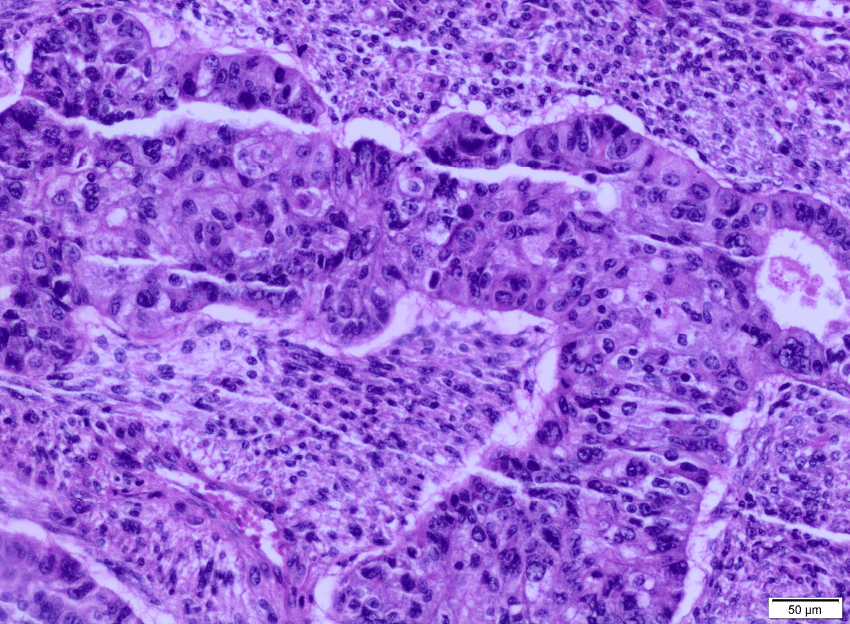
Detailed case description: HRD’s role in ovarian cancer
A 60 year-old woman was diagnosed with high-grade serious ovarian cancer in 2021. She went under surgery followed by platinum-containing adjuvant chemotherapy. After nearly 2 years, she progressed and her CT scan revealed liver and lymph nodes metastasis. In 2023, the primary sample was tested using our OncoDEEP® Kit. The analysis revealed a pathogenic mutation of TP53 gene, which is present in almost 95% of high-grade serous ovarian cancer. However, the patient did not harbor any BRCA1/2 gene mutation. In addition, we detected a BRAF gene rearrangement and an amplification of the FGFR1 gene. The analysis of genomic signatures revealed a positive HRD score for this patient.Clinical insights: Understanding HRD in ovarian cancer treatment
The most interesting results come from the HRD score. Thanks to HRD analysis PARP inhibitors were recommended to the patient. Genomic instability is a consequence of a deficiency in HRR (Homologous Recombination Repair) pathway. This GI can be detected by HRD score and is a target for PARP inhibitors. (Read also Homologous Recombination Deficiency assessment for clinical management using the OncoDEEP® Kit). The HRD score is the first phenotypically defined predictive marker for therapy with PARP inhibitors in ovarian cancer (PMID:27065456). Therefore, treatment based on PARP inhibitors should be associated with potential clinical benefits for this patient. Recently, both FDA and EMA approved the olaparib plus bevacizumab combination for the maintenance treatment of advanced ovarian cancer associated with HRD‐positive status. Concerning BRAF gene rearrangement and the gene amplification of FGFR1 gene, there was no approved therapies associated to those alterations in metastatic ovarian cancer. However, clinical trials are recruiting patients to test a BRAF inhibitor (PLX8394) and FGFR inhibitors (Erdafitinib and Sunitinib).PARP inhibitors have transformed the management of ovarian cancer in the first-line maintenance setting, with gains in Progression-free-Survival (PFS), and now in Overall Survival (OS), in patients with BRCA mutation and HRD. OncoDEEP KIT panel design allows labs to test for all mutation types including genomic signatures such as HRD. In that case, the result helped the clinician to determine the best treatment option for this patient.

Dr. Véronique Haddad
Chief Medical Officer
